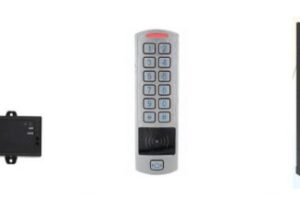Technological advancements have left their imprints on everything and work is no exception. Ever wished you could work remotely from your home? Well, now you can. Remote work is a reality and is becoming more and more popular with each passing day. Employees loves to work remotely from the comfort of their room without having to get ready each morning and travel to work.
Although, most employees are in favor of remote work but there are many businesses that still don’t allow it. One of the main reasons for it is the risk of data breaches. According to a survey conducted by Shred-it, 86% of C-Level executives thinks that the risk of a data breach is much higher when your employees are working remotely.
If you are an employee, who want to convince your boss to grant you permission for remote work, then you should consider the security aspect of it. Even if you do get the nod from your boss, make sure you follow cyber security best practices for remote workers to stay safe online.
In this article, you will learn about those best cyber security practices that make remote work less risky.
- Physically Control Devices
Did you know that a laptop is stolen every 53 seconds at the airports? What’s even worse is that most of these laptops could not be recovered. Most data breaches happen because employee ends up losing their devices and all these devices get into wrong hands. They not only get access to your sensitive data but can also fulfill their malicious design by using that data.
Take care of devices as cyber criminals are always looking out for opportunities to steal unattended devices. Keep your screen locked at all times and protect your devices via password and other secure methods. Use two-factor-authentication to add a layer of security to your devices. You can turn on options such as “Find My Device” which enables you to locate your lost or stolen devices easily. You can also use data encryption to ensure no one will be able to spoof your data and communication during transmission. Keep your HostNoc affordable dedicated server secure by using a firewall at endpoints.
- Turn On Email Encryption
As a remote worker, you might be using different tools for communication. It could be an instant messaging or chat application. For corporate communication, you might be using email. If your work involves sending sensitive data via email, then you should consider email encryption as sending business critical information is risky. The problem with unencrypted text based emails is that hackers launching a man in the middle attack can read your emails easily. With encryption, your emails can only be decrypted by receiver who has keys to decrypt the message. This ensures secure delivery of sensitive message.
- Use Wireless Networks Carefully
Whether you are on public networks or using public computers on wireless networks, you should exercise extra caution. Wireless networks are more vulnerable than wired ones as hackers can easily bypass wireless security protocols. Log out of all your accounts before leaving a public computer you are using. Browse the web anonymously and avoid accessing sensitive data via public computers. Never accept request for saving your login credentials. Get rid of all the files you have been working on or downloaded while working on a public computer. Restart the device so it will delete all the temporary files and settings.
- Be Extra Cautious When Using Removable Storage
There are instances when you get USB drives from different sources and most remote workers would insert it directly without scanning. This results in viruses and malware getting into your system and wrecking havoc on your computer and network. Never plug in a USB device you receive from other sources into a computer that has sensitive business information. Ask your IT team to check the USB and give you the green signal before inserting it in your computer. You never know the unchecked USB you just inserted might contain host malware, a keystroke detector and a USB destroyer which sends bursts of electricity impulses to burn down the USB. Don’t allow anyone to plug removable storage in your computer.
- Raise The Red Flag
With devices outnumbering humans, most people today has more than one device at their disposal. This also increases the security risk as they have to protect all their devices. When it comes to cyber security, you should always follow a proactive approach instead of a reactive one. Keep an eye out for warning signs and raise the red flags as soon as possible.
Some of the warning signs include:
- A sudden surge in number of pop ads and spam messages and emails
- Frequent error messages
- Poor performance
If you see any of these signs, immediately contact your IT department and share your concern with them. Hackers can also launch social engineering attacks to trick users into taking a desired action by presenting a similar homepage or a link that leads you to the form. They can also make a phone call and portray as a sales agent while asking for login details to access your devices. Never ever share your login credentials with them.
Conclusion
Remote work is a liberty that employees can only enjoy if they take the aforementioned precautionary measures. Few data breaches caused due to remote work can put off top management and they might disallow remote work altogether. Stay vigilant and be carefully when using wireless networks, public computers and removable storage. Hackers usually exploit these avenues to get access to your sensitive data. Beware of the social engineering attacks. Send the alarm bells ringing whenever you see one or more warning signs. Report it to your IT department so they can take immediate action and prevent damage.
Which cyber security best practices do you follow during remote work? Feel free to share it with us in the comments section below.



